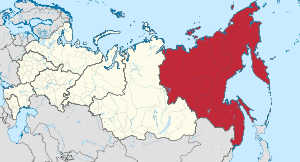by Robert Whitcomb | Sep 2, 2016 | Initiative

A U.S. voting machine.
Russian hackers working at the behest of President Vladimir Putin’s authoritarian government have apparently stolen data on thousands of U.S. registered voters.
Why?
The Guardian suggests that even if “Russia doesn’t want to help tip the scales in {Donald] Trump’s favor, there are plenty of other reasons why they might want to interfere with the U.S. political process. As Russian troops amass on Ukraine’s border for a possible new offensive, it is in Russia’s interest to ensure that {Hillary} Clinton is a weak and embattled president, and cyber-attacks are a cheap and plausibly deniable way to do just that.”
Of course, the more political chaos in the U.S., the better for the Russian dictator.
To read The Guardian’s article on this, please hit this link.
by Robert Whitcomb | Aug 23, 2016 | Initiative
WikiLeaks’ crusade to expose the government secrets of some countries, but not those of Russia or China, is violating the privacy of hundreds of innocent people, including survivors of sexual abuse, sick children and the mentally ill.
The Japan Times reports: “In the past year alone, the radical transparency group has published medical files belonging to scores of ordinary citizens while many hundreds more have had sensitive family, financial or identity records posted to the web. In two particularly egregious cases, WikiLeaks named teenage rape victims. In a third case, the site published the name of a Saudi citizen arrested for being gay, an extraordinary move given that homosexuality is punishable by death in the ultraconservative Muslim kingdom.”
Meanwhile, there has been increasing speculation that Julian Assange, who runs WikiLeaks, is either effectively acting as an agent of Russian President Vladimir Putin or declines to hack Russian or Chinese information because, especially in dealing with the former, he could end up dead. And, of course, democracies and open societies such as the U.S. are much easier to hack than police states like Russia and China.
To read The Japan Times’s story on this, please hit this link.
by Robert Whitcomb | Aug 21, 2016 | Initiative
There are indications that hackers working for the government of Russian President Vladimir Putin may also be targeting Democratic congressional candidates, especially in Florida, as well as Hillary Clinton’s presidential campaign.
To read a Reuters article on this, please hit this link.
by Robert Whitcomb | Aug 10, 2016 | News
In the sort of mass public protest that is increasingly unusual under Russia’s authoritarian government, hundreds of critics of the Russian government of President Vladimir Putin armed with a rare demonstration gathered in Moscow on Aug. 9 to protest a new set of so-called antiterrorism laws.
The laws include requirements to store all communications data for six months, and phone and texting records for one to three years.
The New York Times reported that protesters “decried the legislation as an assault on privacy and internet freedom. …”
The Times continued: “For just over an hour, speakers at the rally — activists, politicians and technology experts — called on Russians to resist government attempts to tighten control over the internet, which many view as the last safe space for dissent in Russia. For just over an hour, speakers at the rally — activists, politicians and technology experts — called on Russians to resist government attempts to tighten control over the Internet, which many view as the last safe space for dissent in Russia.”
To read The New York Times story, please hit this link.
by Robert Whitcomb | Jul 25, 2016 | News
Many experts think that the the regime of Russian President Vladimir Putin is trying to throw the U.S. presidential election to Donald Trump, who has expressed admiration for Mr. Putin and other dictators.
Cybersecurity experts, as well as the Hillary Clinton campaign, are now saying the Russians did last month’s hack of the Democratic National Committee. Mr. Putin, a former KGB agent, and his police state have been hard at work carrying out a cyberwar against parts of the U.S. public and private sectors for several years.
Bob Gourley, a former chief technology officer for the Defense Intelligence Agency and now the co-founder and partner Cognitio, a cybersecurity consultancy, told Bloomberg:
“The software code that I have seen from the hack had all the telltale signs of being Russian, including code re-used from other attacks. This is a really big deal. Some people in the community are saying this is the Russians pretending to be a hacker, then giving that information to Julian Assange is all part of an operation.” (Assange founded WikiLeaks.)
To read the Bloomberg story, please hit this link.
by Robert Whitcomb | Jul 14, 2016 | News
Lucian Kim writes in a Reuters opinion piece that the Russian athletes’ “doping scandal is a symptom of a much larger problem: the casual disregard for the truth that has become a hallmark of {Russian President Vladimir} Putin’s rule. In a country where elections are rigged, lawsuits are fabricated, and state TV spews lies around the clock, it’s hard to know what ordinary citizens are to believe anymore. Beyond politics, corruption has not only gnawed away at Russia’s reputation as a sports powerhouse, but cheapened the prestige of its once-vaunted institutions of higher education.
“Putin’s initial denial of Russia’s 2014 military intervention in Crimea — followed by a later admission of it — was the clearest demonstration of the Kremlin’s belief that the ends justify the means. Many Russians seem to agree.
“In a poll taken by the independent Levada Center in April 2015, 37 percent of respondents said they believed their government that Russia wasn’t militarily involved in eastern Ukraine. An almost equal portion, 38 percent, said that ‘even if there are Russian soldiers and military equipment in Ukraine, it’s the correct policy for Russia to deny these facts in the current global situation.’ ”
To read Mr. Kim’s essay, please hit this link.
by Robert Whitcomb | Jul 14, 2016 | News

The Russian Far East is in red.
Many Russians fear that their nation’s Far East could end up being absorbed by China, with its 1.4 billion people and huge economy.
So the Russian government, following the directive of strongman President Vladimir Putin, is offering to give land to lure Russian settlers to the vast region. The nine Far Eastern regions covered by the program take up more than a third of Russia’s area but are home to only 6.1 million people, compared with the 110 million Chinese living across the border in Manchuria.
Mr. Putin said in 2013 that the development of Siberia and the Far East must be “our national priority for the entire 21st Century.”
To read a New York Times piece on this, please hit this link.

